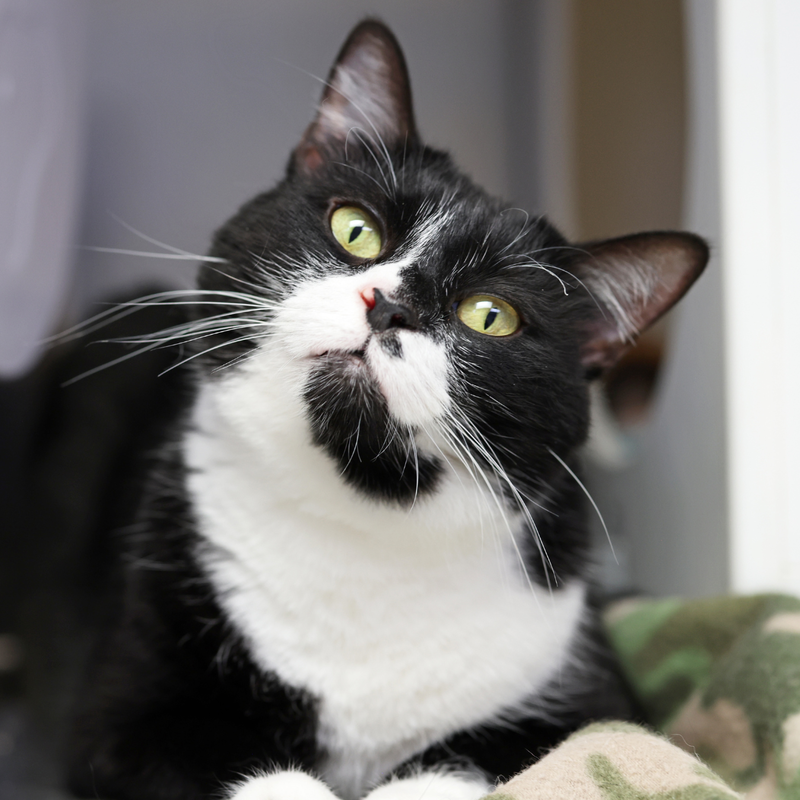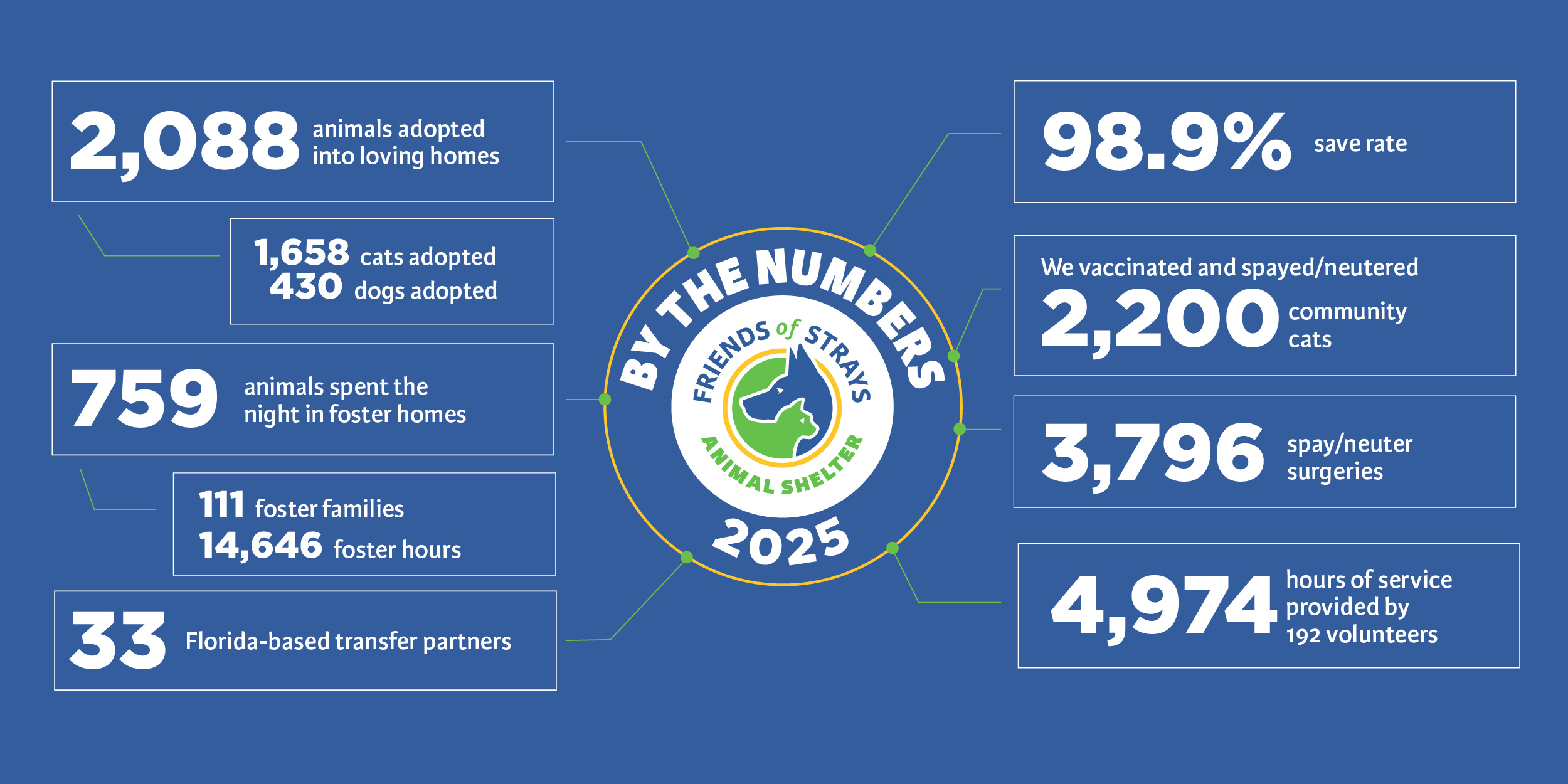Introducing your shelter cat to your dog or cat

Wednesday, August 9, 2023
One common reason that people return pets to the shelter is the new cat not getting along with their current pet. However, many times this inability to cohabitate is the fault of the person, not the pets! You must be careful not to rush pets. Your newly-adopted shelter cat is adjusting to a new home, new routines, and a new environment, and your other cat or dog is adjusting to a new family member.
When you come to Friends of Strays to adopt a cat, and you have another pet in the home, we will always tell you that slow introductions are most successful. But what does a slow introduction mean? While every pet-to-pet relationship is different, you should plan to spend days or even weeks keeping your new and old pets separated, with slow, controlled periods for interaction. This approach will be best for everyone in the home!
Cat-to-Cat Introductions:
When you bring your new shelter cat home, set them up in a room where they can be on their own. A spare bedroom or a bathroom is fine. Smaller spaces help cats adjust more easily and feel more safe.
Start by introducing smells to each cat. While your new cat is being kept in their separate space, trade out blankets and beds between your new cat and your other cat(s) so they can begin to recognize each other’s smell. You can even feed them near the new smell so it’s associated with something positive.
When you begin introductions into the same space, you should always be present to monitor behavior. Hissing is a normal response between two kitties who have never met; but if the behavior escalates into more aggressive tactics, separate them and try again another day. The introduction process can take days, weeks or even months! Be patient as your cats learn to coexist. They may even become best friends!
Cat-to-Dog Introductions:
Start with the same concept of allowing your new kitty to have a separate room as a safe space, and the exchange of smells. Dog and cat introductions should happen on the kitty’s terms with the dog on leash, and you should be present and in control of the dog during all introduction attempts. If any aggression is shown by either animal, separate and try again another day. If you have a baby gate, set it up so that your cat can begin to interact with your dog at their own pace but can still retreat to their safe space when they want. Make sure to praise your dog for good behavior. If they become too fixed on the excitement of the cat, try to redirect their behavior with treats and training sessions so they associate the cat with positive reinforcements. If your dog has a high prey drive, do not leave the dog and cat out together unsupervised.

